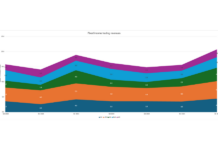A new report, ‘European repo market and the COVID-19 crisis’ published by the International Capital Markets Association, has found that some buy-side firms had difficulty meeting their margin calls after the sell side reduced their activity in repurchase agreements (repo) in March, a concern raised by The DESK in Q1. As wider market volatility grew, asset managers saw no return of liquidity until central banks stepped in.
Repo trading platform BrokerTec saw considerable increase in dealer activity over this period, with March volume averaging €284.7 billion per day and a new record of €319 billion set on 11 March 2020.

“Naturally the market used repo to generate additional cash but also continuing to maintain their liquidity ratios and buffers to support capital requirements with high quality liquid assets,” says John Edwards, global head of BrokerTec. “BrokerTec Europe had its largest ever day in terms of nominal volume. For the first week of March we did see a shift into nearly all one-day financing and a real move away from term-adjusted financing. Then once the initial shock settled down we saw people try to lock into longer dated financing.”
Based on research from its European Repo and Collateral Committee (ERCC), ICMA found that buy-side members reported that “while they were successfully able to manage their liquidity through the early part of March (offsetting fund outflows with positive margin inflows), as this became more challenging, and as access to the repo market became more imperative, they report that banks simultaneously began to reduce their repo capacity.”
Trading itself continued without any systemic problems, reports Edwards.
“There were no major issues as people began remote working, beyond getting used to the different environment, routing and operation and some natural slowdown in terms of how quickly and effectively you can communicate. There would have been a loss of activity trading through more traditional voice broking, due to the ease with which activity could happen electronically under those conditions.”
There were several reasons for dealers to step back. The tendency of banks to ‘window dress’ their books to improve capital requirements at quarter-end and year-end means they reduce repo activity during reporting periods. ICMA observed that another potential effect was a result of banks increasing their direct lending to corporate clients as the commercial paper market dried up, which reduced the cash available to lend through the repo market.
“They note that it was ultimately ECB (and other central bank) intervention that helped to ease the mounting tension, reversing the ongoing sell-off in risk assets and freeing up banks’ credit lines,” ICMA wrote. “They are also keen to emphasise that as helpful, and necessary, as the central bank actions were, a timelier response would have been preferred, not least as by this point some firms report having run down their liquidity buffers and were struggling to generate cash against their assets to meet margin calls.”
©Markets Media Europe 2025

























